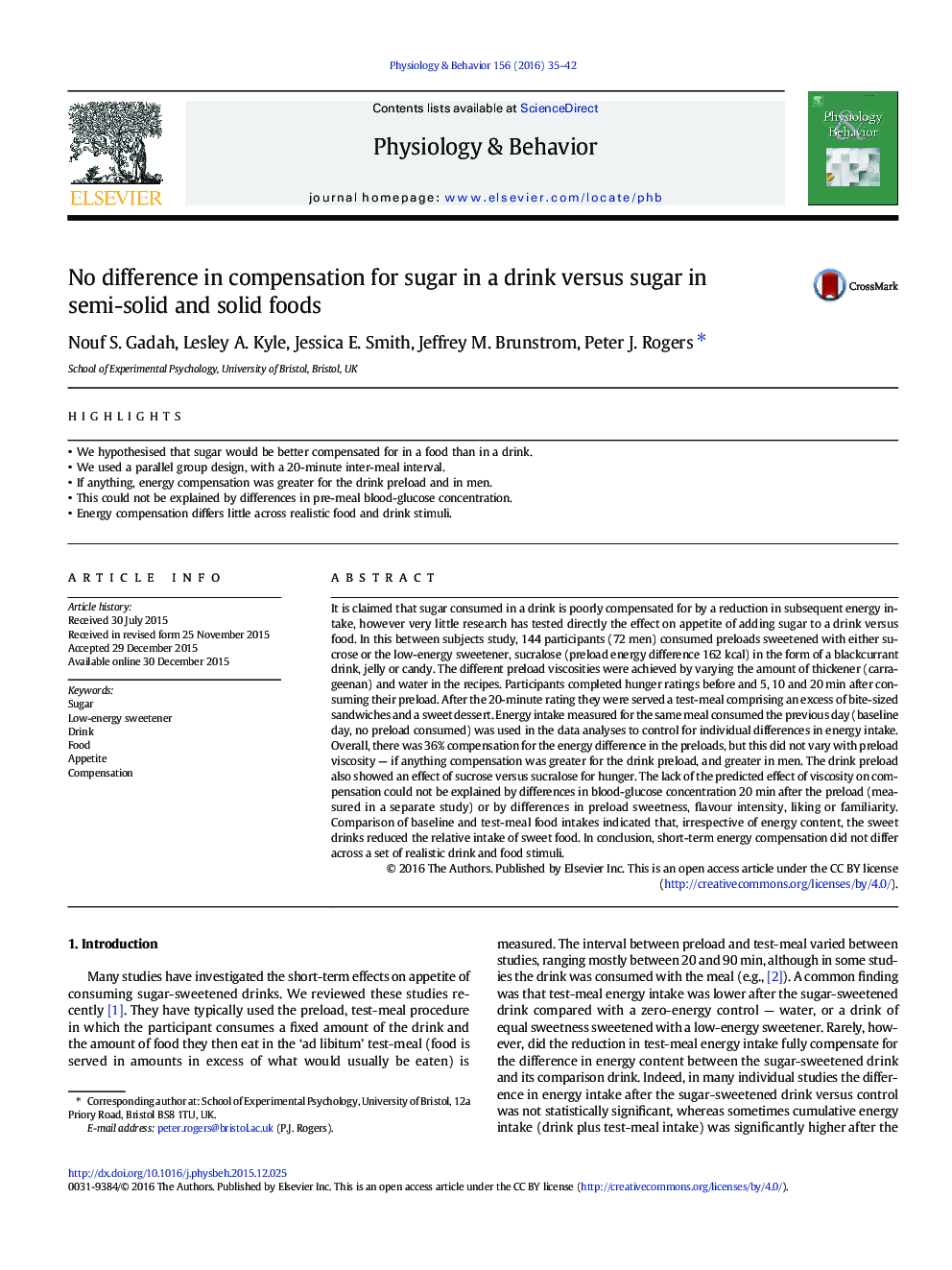| کد مقاله | کد نشریه | سال انتشار | مقاله انگلیسی | نسخه تمام متن |
|---|---|---|---|---|
| 5922976 | 1571162 | 2016 | 8 صفحه PDF | دانلود رایگان |
عنوان انگلیسی مقاله ISI
No difference in compensation for sugar in a drink versus sugar in semi-solid and solid foods
ترجمه فارسی عنوان
تفاوت در جبران قند در نوشیدنی نسبت به شکر در مواد غذایی نیمه جامد و جامد تفاوت ندارد
دانلود مقاله + سفارش ترجمه
دانلود مقاله ISI انگلیسی
رایگان برای ایرانیان
کلمات کلیدی
قند، شیرین کننده انرژی کم بنوش غذا، اشتها جبران خسارت،
موضوعات مرتبط
علوم زیستی و بیوفناوری
بیوشیمی، ژنتیک و زیست شناسی مولکولی
فیزیولوژی
چکیده انگلیسی
It is claimed that sugar consumed in a drink is poorly compensated for by a reduction in subsequent energy intake, however very little research has tested directly the effect on appetite of adding sugar to a drink versus food. In this between subjects study, 144 participants (72 men) consumed preloads sweetened with either sucrose or the low-energy sweetener, sucralose (preload energy difference 162Â kcal) in the form of a blackcurrant drink, jelly or candy. The different preload viscosities were achieved by varying the amount of thickener (carrageenan) and water in the recipes. Participants completed hunger ratings before and 5, 10 and 20Â min after consuming their preload. After the 20-minute rating they were served a test-meal comprising an excess of bite-sized sandwiches and a sweet dessert. Energy intake measured for the same meal consumed the previous day (baseline day, no preload consumed) was used in the data analyses to control for individual differences in energy intake. Overall, there was 36% compensation for the energy difference in the preloads, but this did not vary with preload viscosity - if anything compensation was greater for the drink preload, and greater in men. The drink preload also showed an effect of sucrose versus sucralose for hunger. The lack of the predicted effect of viscosity on compensation could not be explained by differences in blood-glucose concentration 20Â min after the preload (measured in a separate study) or by differences in preload sweetness, flavour intensity, liking or familiarity. Comparison of baseline and test-meal food intakes indicated that, irrespective of energy content, the sweet drinks reduced the relative intake of sweet food. In conclusion, short-term energy compensation did not differ across a set of realistic drink and food stimuli.
ناشر
Database: Elsevier - ScienceDirect (ساینس دایرکت)
Journal: Physiology & Behavior - Volume 156, 15 March 2016, Pages 35-42
Journal: Physiology & Behavior - Volume 156, 15 March 2016, Pages 35-42
نویسندگان
Nouf S. Gadah, Lesley A. Kyle, Jessica E. Smith, Jeffrey M. Brunstrom, Peter J. Rogers,
